
Marina Carr (b. 1964), one of the most talented of the new generation of Irish playwrights, is noted for her “blend of rural Irish domestic tragedy and classical re-writing, a mixture which marks her out as a writer concerned with …

Marina Carr (b. 1964), one of the most talented of the new generation of Irish playwrights, is noted for her “blend of rural Irish domestic tragedy and classical re-writing, a mixture which marks her out as a writer concerned with …
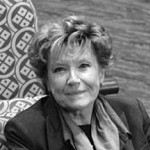
Dacia Maraini (b. 1936, Fiesole) is a well-known Italian writer whose work focuses on women’s issues. The author of numerous plays, poetry collections, and novels, she is the recipient of many awards, most recently the Premio Strega for Buio (1999), …
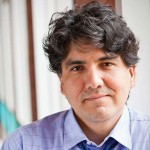
Sherman Alexie (b. 1966, Washington) was named one of the New Yorker’s twenty top writers for the twenty-first century. The author, poet, and screenwriter’s pieces are driven by a haunting lyricism and naked candor that go to the heart of the human experience. The New …
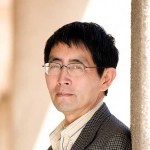
Bei Dao is the most distinguished poet of his generation and considered by many to be one of the major writers of modern China. Born Zhao Zhenkai on August 2, 1949, in Beijing, his pseudonym, Bei Dao, literally means “Northern …
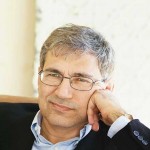
Orhan Pamuk‘s novel Snow is “not only an engrossing feat of tale-spinning but essential reading for our times,” according to Margaret Atwood. Pamuk (b. 1952 Istanbul) is a Turkish novelist, screenwriter, and academic. Pamuk won the Nobel Prize in Literature in 2006, and won …
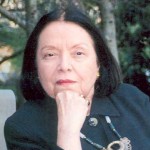
Nélida Piñon was born in Rio de Janeiro into a Galician family, attended German high school, and later studied at the Pontifícia Universidade Católica in Rio. She has taught at the Federal University in Rio, Harvard, Georgetown, Columbia, Johns Hopkins, …
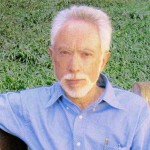
J.M. Coetzee‘s novel Disgrace is regarded by The New Yorker as “not a hard or obscure book — it is, among other things, compulsively readable — but what it may well be is an authentically spiritual document, a lament for the soul of a …
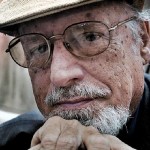
Roberto Fernandez Retamar (b. 1930, Havana) is esteemed for his excellence as a poet, essayist, editor, and scholar. He undertook early studies in art and architecture before turning to literature in Havana, Paris, and London. After a time teaching at Yale …
2002 Puterbaugh Fellow Roberto Fernández Retamar Read More »
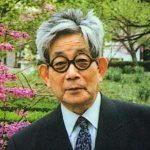
Kenzaburo Ōe (b. 1935 Ōse) is a Japanese author and a major figure in contemporary Japanese literature. When he was 18, Ōe made his first trip to Tokyo, and in the following year began studying French Literature at Tokyo University. He began publishing …
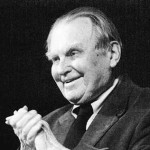
Czesław Miłosz (b. Szetejnie 1911) was regarded by The Nobel Foundation as someone “who with uncompromising clear-sightedness voices man’s exposed condition in a world of severe conflicts.” He received the Nobel Prize in 1980. Miłosz was active in the work of Organizacja Socjalistyczno-Niepodległościowa …
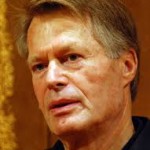
J.M.G. Le Clézio (b. 1940) is an “author of new departures, poetic adventure and sensual ecstasy, explorer of a humanity beyond and below the reigning civilization is a French-Mauritian author of over forty works,” according to the Swedish Academy. Clézio is …
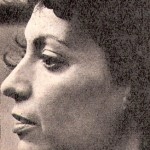
Luisa Valenzuela (b. Buenos Aires 1928) has gained international renown for her award-winning novels and short stories. She is known for a unique, experimental writing style that questions hierarchal social structures, and for her critique of the 1970s dictatorship in Argentina. Valenzuela’s father was a …
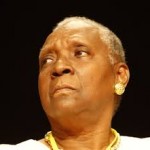
Maryse Condé (b. 1937 Guadeloupe) is a prolific novelist, playwright, and critic. Her books explore the clash of cultures and races, particularly in African and Caribbean settings. Condé was educated in Paris, and having lived in Ghana, Senegal, and the Ivory Coast as …
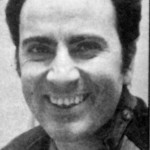
Manuel Puig (b. 1932 General Villegas) was an Argentine author. His novel El beso de la mujer araña (1976) (Kiss of the Spider Woman) was made into a film, and in 1993 it was made into a Broadway musical. Puig has written novels, …
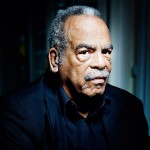
Edouard Glissant (b. 1928 Sainte-Marie) devoted all his life and creative activity to the quest for the Antillean identity (see WLT, Vol. 63.4). During his life, his attachment to the land led him to describe its landscape in his writings and his poetry, which …
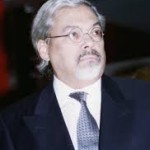
Guillermo Cabrera Infante (b. 1929 Cuba) was a Cuban novelist, essayist, translator, screenwriter, and critic. His novel Tres Tristes Tigres (published in English as Three Trapped Tigers) has been compared to James Joyce’s Ulysses. Infante began studying journalism in 1950 at the University …
1987 Puterbaugh Fellow Guillermo Cabrera Infante Read More »
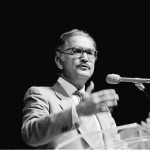
Carlos Fuentes (b. 1928) was “one of the most admired writers in the Spanish-speaking world,” according to the New York Times. Fuentes was one of Mexico’s most discussed and prolific writers. He visited World Literature Today and the University of Oklahoma as the honored 1983 Puterbaugh …
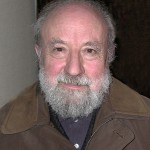
Michel Marie François Butor (b. 1926 in Mons-en-Barœul) studied philosophy at the Sorbonne, graduating in 1947. Butor has been a lecturer at the University of manchester, and a teacher in Thessaloníki, Greece (1954–55), Geneva, Switz. (1956–57 and 1975–91), and numerous other cities in the United States and France. …
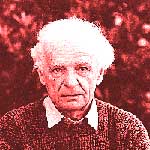
Yves Bonnefoy (born 24 June 1923) is a French poet and essayist. Bonnefoy was born in Tours, Indre-et-Loire, the son of a railroad worker and a teacher. His works have been of great importance in post-war French literature, at the same …
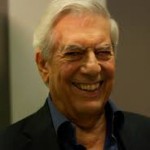
Since the early 1960s, Peru’s Mario Vargas Llosa (b. 1936) has been regarded as one of Latin America’s leading writers, a novelist whose books can be read as a modern-day saga of Peruvian and Latin American society. Among his more …
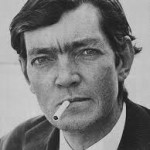
Julio Cortázar was born in Brussels in 1914. At the age of four, he came to live in Argentina, where he group up in a suburban town near Buenos Aires. In 1938 he published his first volume of poetry: Presencia (Presence) …
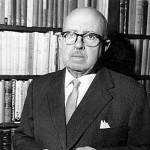
Dámaso Alonso was a Spanish poet, philologist, and poetry critic. His work can be divided into three general categories: historical linguistics in the tradition of Menendez Pidal; literary criticism and stylistic analysis; and creative writing, especially poetry. The common denominator is philology …
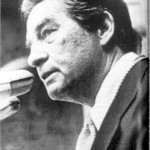
Born in 1914, Octavio Paz started to write poetry while still very young. His book of essays, El laberinto de la soledad (The Labyrinth of Solitude) was an instant success that won him international acclaim in 1945. The book, which went through …
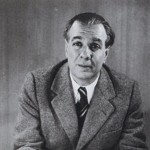
Jorge Luis Borges (1899-1986) was an Argentine writer, essayist, poet, translator, and one of the most widely known contemporary Hispanic writers of his time (WLT, Vol. 45.3). Nearly ten years after the centennial of his birth, the competing chorus of scholarship on Jorge Luis Borges seems to …

Jorge Guillén, Spanish poet and scholar, was the first to whom the Puterbaugh Festival (then the Puterbaugh Conferences on Writers of the French-Speaking and Hispanic World) was dedicated (WLT, Vol. 80.5). He was honored in this series, sponsored by Books Abroad/World …